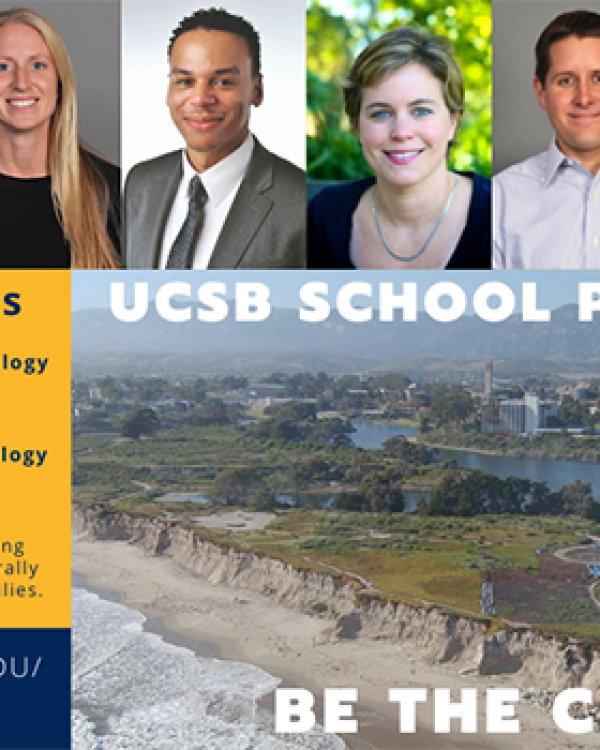
The National Coalition on Personnel Shortages in Special Education and Related Services estimates the United States lacks nearly 15,000 school psychologists it needs to take care of its school-aged children. The coalition also reports that for every school psychologist, there are an estimated 1,182 students. The recommended ratio is half that, or one psychologist for every 500-700 students.
In response to this great need, the Gevirtz School now offers a terminal M.Ed. in School Psychology and is accepting students into its first cohort for the 2022 school year. The new, three-year Master’s is for those who seek to be practitioners in the field; the five-year doctoral program the Department of Counseling, Clinical, and School Psychology has long been known for continues for those seeking to become faculty members.
The UCSB Master’s of Education in School Psychology program implements a Science-to-Practice model, emphasizing the implications of research findings in psychology and education for psychological services in school settings. “The fun thing about graduate school is that you get to learn about all the why's in the UCSB classroom and then you get to discover the how's when implementing practices in our local schools,” explains faculty member Dr. Erin Dowdy. “For example, our students learn about why it is critically important to consider a student's linguistic background when conducting psychoeducational assessments, and then they get to apply that knowledge directly and learn how to conduct bilingual assessments in our local schools under the supervision of UCSB faculty and local school psychologists.”
What’s more, the Gevirtz School program is committed to meeting the rising need and demand for highly-skilled, well-prepared, and culturally-responsive school psychologists, especially from underrepresented backgrounds in the field of education, to serve school children in California and across the U.S. The program is engaged in professional activities to advance diversity, equity, inclusion, social justice, and antiracism. While approximately 49% of U.S. public school students identify as racial and/or ethnic minorities, a recent membership survey of the National Association of School Psychologists (NASP) indicated that only 13% of school psychologists affiliated with the organization identified as racial and/or ethnic minorities.
“Graduate students in our program will be learning how to meet the learning and psychosocial needs of students who have been historically underserved in schools,” says faculty member Dr. Miriam Thompson. “This means that graduates from our program will learn how to advocate for school children, who by virtue of their racial, cultural, linguistic, and ethnic background, may have been denied access to quality educational programming and mental health services.”
The UCSB school psychology training model emphasizes the integration of theory, research methodology, professional role development, and practice/skills, so that its graduates develop strong research and data analysis skills. M.Ed. students earn practice in the field, developing their skills under university-based supervision that integrates the areas of theory, research, and role development.
“For example, our students will be learning conceptual models of dual language development and bilingual assessment, studying evidence-based interventions to support learning disabilities including dyslexia, and integrating these into practice under the supervision of local school psychologists,” says faculty member Dr. Jill Sharkey. “Upon graduation they will be poised for leadership in the field and help fill the strong demand for bilingual and bicultural school psychologists who are trained to better serve the diverse school children of California.”
School psychologists make positive, lasting difference in children’s lives. School psychologists apply expertise in mental health, learning, behavior, and development to help children and youth succeed academically, socially, behaviorally, and emotionally. In addition to working directly with students, they partner with families, teachers, and other professionals to create safe, healthy, and supportive learning environments. They work with school administrators to improve school-wide policies. And they even collaborate with community providers to coordinate services for students in the schools. As faculty member Dr. Shane Jimerson highlights, attesting to the power of the program, “UCSB school psychology alumni are advancing social justice each day, through their professional services in the schools to support marginalized and minoritized children.”